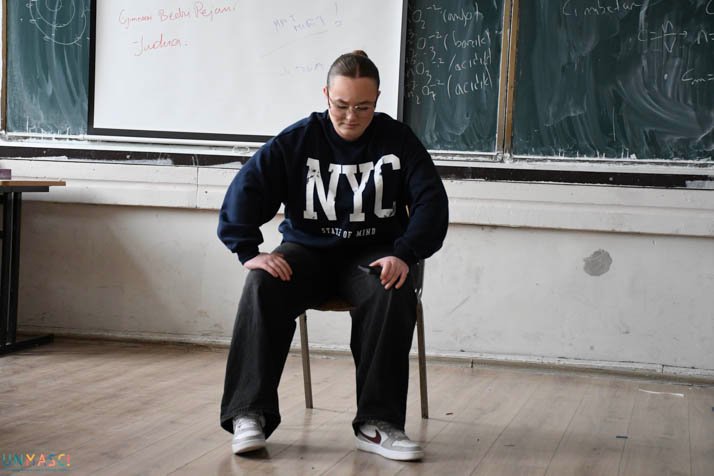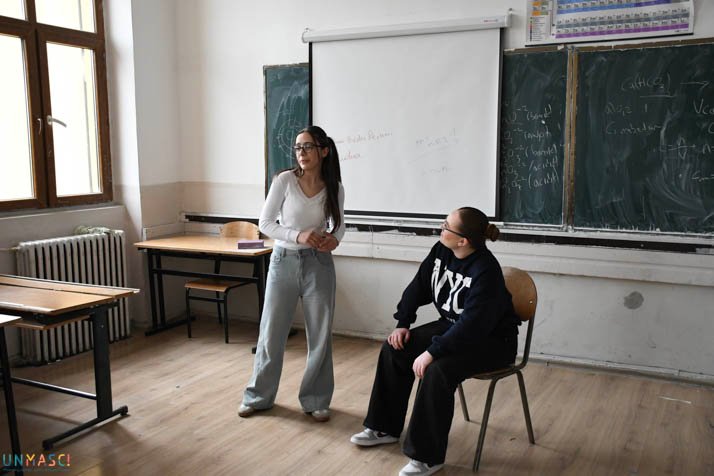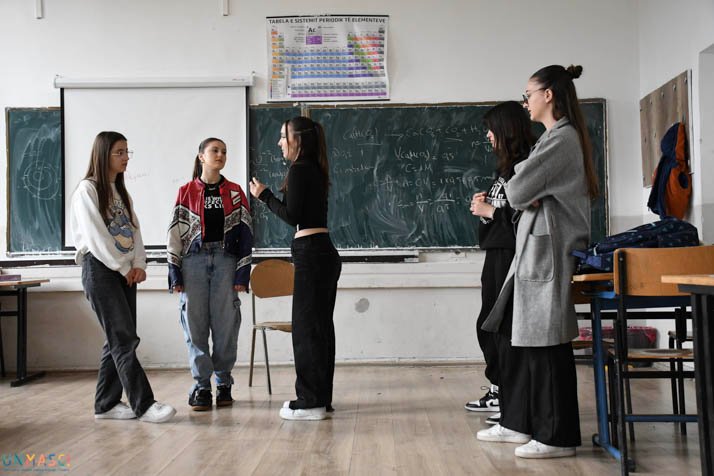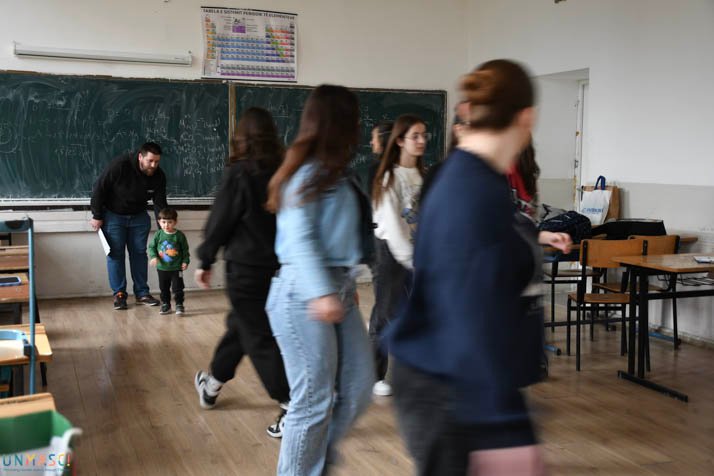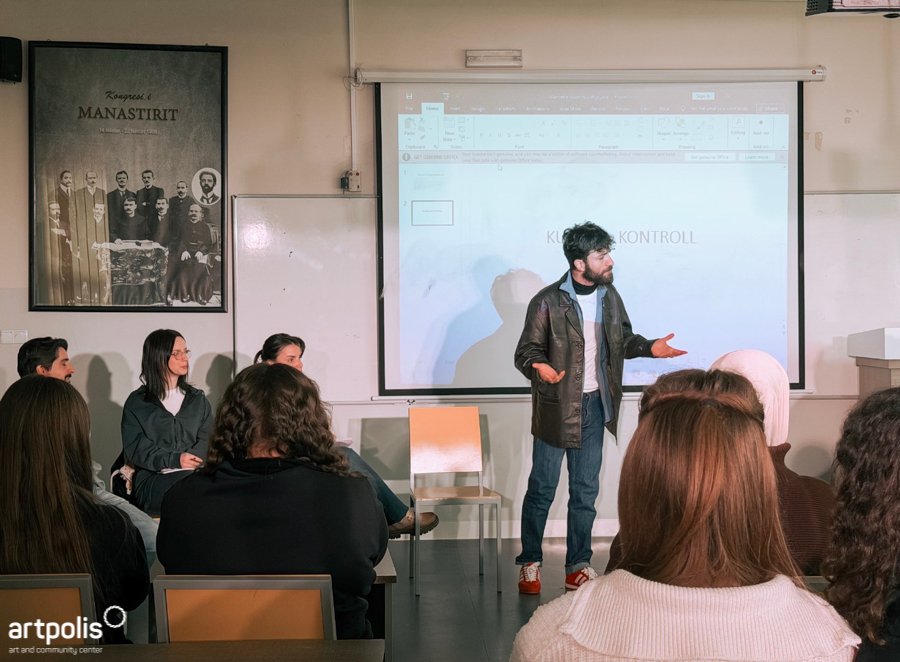
“Behind the Screen” in Vushtrri Highlights the Phenomenon of Online…
February 12, 2026
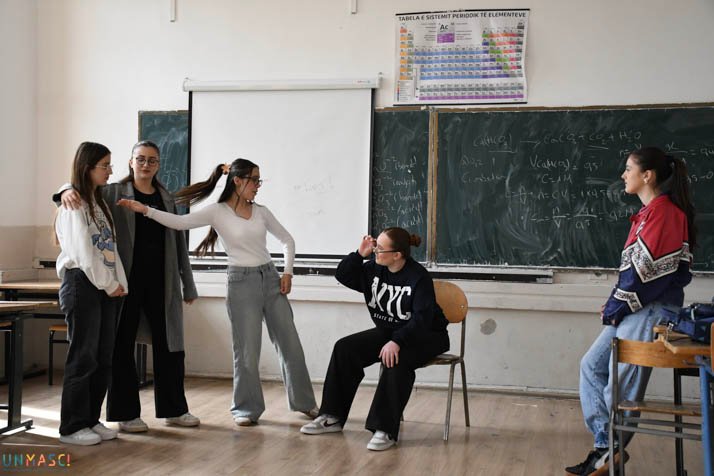
2,3,19,23.03.2025
Through the training program “Theatre-Based Education,” a series of four transformative Artistic Research workshops took place in Ferizaj, Prishtina, and Peja on March 2, 3, 19, and 23, 2025. Led by Berat Bajrami and Elira Lluka, these workshops became powerful spaces where theatre, activism, and social engagement intertwined to challenge gender injustices.
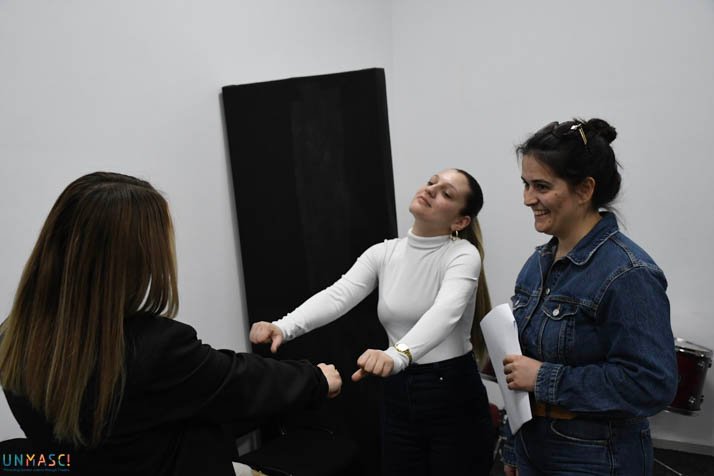
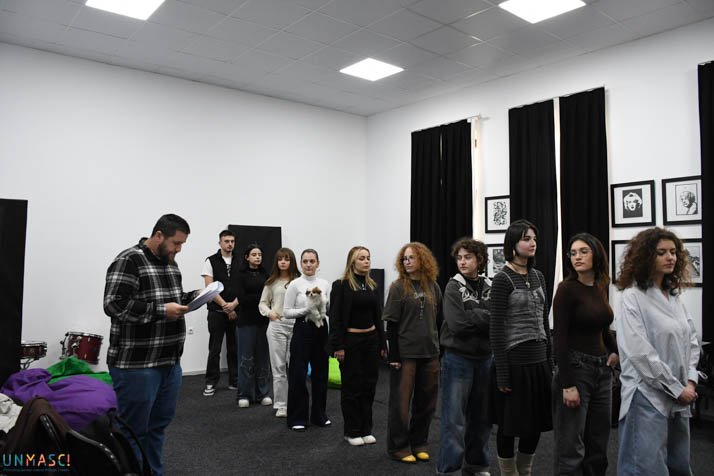
As part of the project “Unmasc! Promoting Gender Justice Through Socially Engaged Theatre,” 44 participants engaged in dynamic exercises designed to foster self-reflection, empathy, and collective transformation. Through movement, voice, and posture, they explored themes of oppression, resistance, reconciliation, and harmony—each step an act of artistic expression and social resilience.
A Journey Through Storytelling
The workshops began with “Icebreaker” and “The Energy Circle,” creating a foundation of trust and connection among participants. Introducing themselves through name and gesture reinforced a sense of presence and collective identity. Movement exercises, accompanied by music, helped bodies respond intuitively, breaking down self-awareness barriers and encouraging emotional openness.
At the heart of the workshop, the “Frozen Sculpture” exercise brought social forces to life through still images. Divided into groups, participants created scenes depicting violence and the fight for gender equality. Each tableau raised urgent questions: Who holds power? Is gender equality a necessity? A final collective sculpture embodied their role in upholding justice, turning art into a call to action.
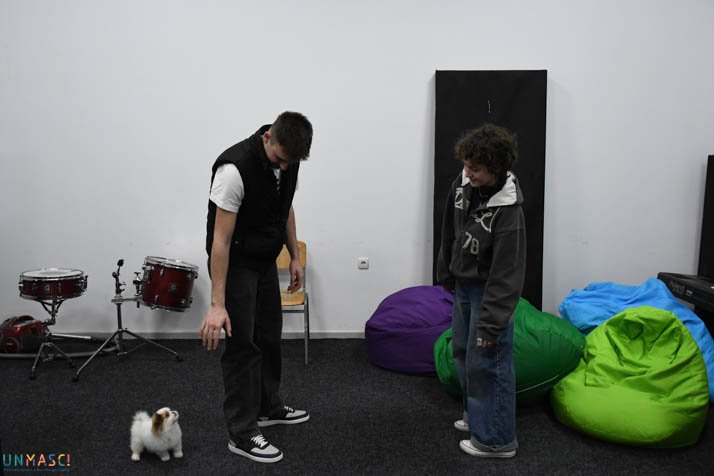
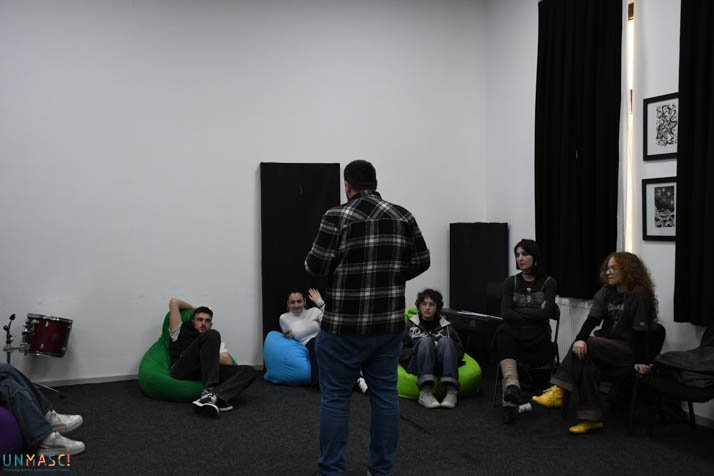
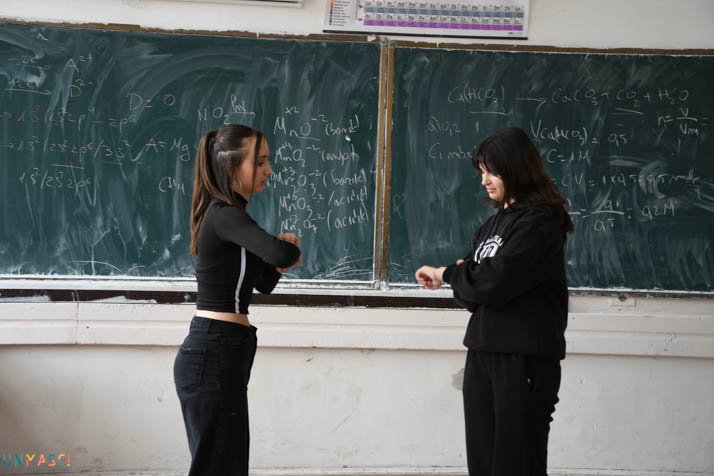
The “Mirror Exercise” deepened this exploration, as partners mimicked each other’s movements, shifting between the roles of leader and follower. This practice highlighted the fluidity of power—true harmony emerges not through dominance but through mutual understanding and empathy.
In “Walking Through Space,” participants moved while responding to sudden changes in rhythm, emotions, and commands, mirroring the chaos of the real world. Through adaptation and resilience, they navigated the challenges of collective movement and cooperation.
As the workshops concluded, reflections surfaced: Which roles were the hardest to embody? How do violence, resistance, and love shape our realities? And most importantly—how can these lessons be transformed into feminist activism?
From static sculptures to fluid movement, these workshops were more than a theatrical practice—they were a rehearsal for reality. A space where theatre was not just a stage but an arena for justice, and every participant, an agent of change.
The journey does not end here. “Unmasc!” continues, inviting artists, activists, and communities to unmask societal limitations and build new narratives—where gender justice is not just a dream, but a lived reality.
